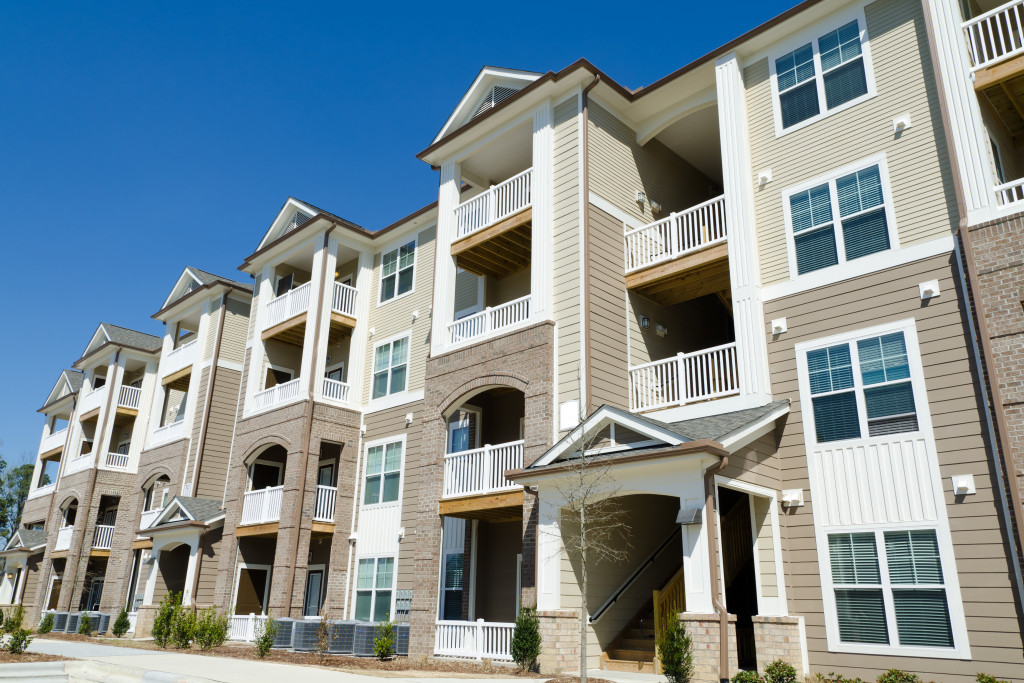- Thoroughly research local real estate markets for profitable rental opportunities.
- Utilize pricing strategies to maximize profits and remain competitive in the marketplace.
- Identify financial assistance and investment opportunities when purchasing rental properties.
- Create a comprehensive business plan by creating aspects like target market and budget breakdown.
- Establish maintenance procedures and appropriate standards for renters.
Are you an aspiring entrepreneur looking to start a rental property business? If so, then you’ve come to the right place. Here are five essential tips to help get your rental property business off the ground and running smoothly. Whether you’re just starting or have experience in real estate investing, these simple strategies will help give your business. A competitive edge and ensure your success. You can turn your rental property business into a profitable venture with the proper knowledge and hard work.
- 1. Researching and Analyzing Real Estate Markets
- 2. Maximizing Profits with Smart Pricing Strategies
- 3. Identifying Potential Financial Assistance and Investment Opportunities
- 4. Crafting a Compelling Business Plan for Your Rental Property
- 5. Establishing Maintenance Procedures and Setting Appropriate Standards
- To Wrap It Up
1. Researching and Analyzing Real Estate Markets
The first step to starting a rental property business is thoroughly researching the local market. It’s essential to understand the types of properties in demand, the average rental prices, and other vital factors like the availability of financing and whether there are rent control laws in your area. You should also consider location: will you rent properties in an urban or suburban area? Rural areas? What amenities do the properties need, and how much can you charge? These factors will help you determine what kind of rental property business is right for you.
2. Maximizing Profits with Smart Pricing Strategies

Once you’ve researched the local real estate market, it’s time to set your pricing strategy. You should aim to make a profit while still being competitive with other rental properties in your area. Consider factors like square footage and amenities when determining how much rent to charge for each parcel. If you’re renting out multiple units, you can offer discounts or
3. Identifying Potential Financial Assistance and Investment Opportunities
Once you’ve established your budget, it’s time to organize your finances. This includes getting a loan or other financing for purchasing rental properties and ensuring you have the funds required for any necessary renovations or repairs. Setting aside an emergency fund is also wise if something unexpected occurs.
4. Crafting a Compelling Business Plan for Your Rental Property
A solid business plan is essential for any rental property business, as it will outline your goals and strategies for achieving them. Your business plan should include your services (e.g., property management, leasing, etc.), the target market you want to reach, and a budget breakdown. It should also include information on your competitive advantage (i.e., why potential customers should choose you over other rental property businesses), marketing strategies, and financial projections for the next few years.
Here are the factors your business plan should contain in full detail:
Define Your Services and Target Market
When it comes to your rental property business, you must clearly define your services (e.g., property management, leasing, etc.) and who your target market is. Think about the type of tenants you want to attract and any specific needs they may have so that you can tailor your services accordingly.
Outline Your Competitive Advantage

What sets your rental property business apart from the competition? It could be something as simple as offering more flexible lease terms or a unique feature you provide that no one else does. Regardless of your competitive edge, make sure to outline it in your business plan.
Create a Detailed Budget Breakdown
A budget breakdown is an essential part of any business plan, and it’s necessary for rental property businesses as they involve significant one-time investments (e.g., purchasing the property) and ongoing expenses (e.g., regular maintenance). Make sure to include all relevant costs in your budget.
Include Financial Plans
Your financial plan should include utilizing mortgage companies to help you secure the funds needed to purchase rental properties. The right company will be able to provide you with competitive rates and flexible loan terms. Additionally, you should create a cash flow analysis to help you assess your rental income and expenses to ensure you are making a profit.
5. Establishing Maintenance Procedures and Setting Appropriate Standards
Creating a maintenance plan is essential in establishing your rental property business. You must ensure all the properties are safe and in good condition, so you should develop standards for cleanliness, repairs, and other maintenance tasks. You should also decide how tenant issues will be handled, such as late rent payments or damage to the property.
To Wrap It Up
Starting a rental property business can be lucrative, but ensuring you are as prepared and informed as possible before diving in is essential. By following these five tips, you can set yourself up for success and ensure your rental property business runs smoothly from the start. With the right approach, your rental property business will quickly become successful and profitable.

